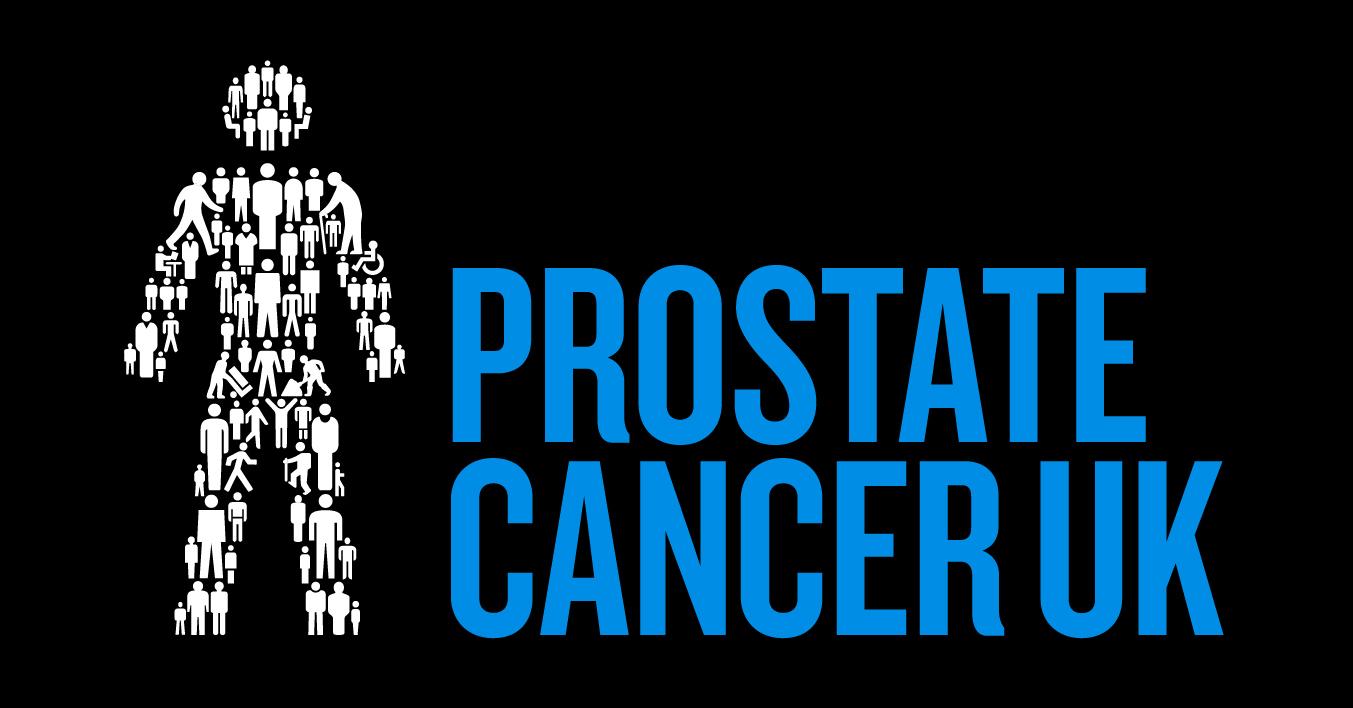Can I Reduce My Risk Of Prostate Cancer?
Cancer / Men's HealthA healthy diet and regular exercise are important for health, and might help lower your risk of being diagnosed with advanced or aggressive prostate cancer. The following information may be useful if you want to find out more about healthy eating and physical activity.
If you've been diagnosed with prostate cancer, take a look at the information on diet and physical activity for men with prostate cancer.
Can a healthy lifestyle reduce my risk of prostate cancer?
No one knows how to prevent prostate cancer, but staying a healthy weight may be important.
There is strong evidence that being overweight increases the risk of being diagnosed with advanced prostate cancer. Keeping active and eating a healthy diet can help you stay a healthy weight, and can improve your health in other ways too. Read more about diet and getting active below.
You can’t change your age, ethnicity or family history, but you can take control of your lifestyle. If you would like help making changes, ask your GP or practice nurse if there are any local healthy lifestyle services.
What is a healthy weight?
Being a healthy weight could lower your risk of advanced prostate cancer. It can also improve your general wellbeing and help prevent other health problems such as type diabetes, heart disease and some other cancers. There are different ways of measuring whether you are a healthy weight. These include body mass index (BMI) and waist size.
Your BMI can tell you whether your weight is healthy. It is your weight in kilograms divided by your height in meters squared.
Finding out my BMI
For most adults, a healthy BMI is between 18.5 and 24.9. A higher BMI means you’re likely to be overweight, and at a higher risk of some health conditions. BMI is not suitable for everyone, for example, if you’re very muscular. This is because it can’t tell the difference between fat and muscle.
Your BMI limit may also change depending on your ethnicity. For example, a lower BMI is recommended for black African, African-Caribbean, South Asian and Chinese ethnic groups.
You can use the BMI calculator on the NHS website for a more personalised BMI result.
Your waist size
Another way to check if you’re a healthy weight is to measure the size of your waist. Carrying fat around your stomach can raise your risk of, heart disease, diabetes and other health problems.
To measure your waist, wrap a tape measure around your stomach, half-way between the top of your hips and the bottom of your ribs. Breathe out naturally.
For a man, if your waist size is 94cm (37 inches) or more, you have a higher risk of health problems. If it’s 102cm (40 inches) or more, you’re at very high risk of some serious health conditions and should speak to your GP.
As with BMI, the threshold may be lower depending on your ethnicity. These are the guidelines for white European, black African, Middle Eastern and East Mediterranean men. For African-Caribbean, South Asian, Chinese and Japanese men, if your waist size is 90cm (35.4 inches) or more, you’re at a very high risk of developing health problems.
What is a healthy diet?
A balanced diet should contain all the food groups shown in the Eatwell Guide below. This will ensure your body has all the energy and nutrients it needs while only eating a small amount of foods high in fat, salt and sugar.
The Eatwell Guide shows how much of what you eat and drink overall should come from each food group for a healthy balanced diet.
The Eatwell Guide is suitable for most people. If you have specific dietary requirements or health problems, speak to your doctor or a dietician.
Can any foods lower my risk of prostate cancer?
You may have heard that certain foods might lower your risk, including, soya foods, oily fish and foods containing:
- lycopene– such as tomatoes and tomato products
- selenium – a mineral found in foods such as Brazil nuts, fish, seafood, liver and kidney
- vitamin E – such as nuts, seeds, wholegrains, green leafy vegetables and avocados.
But the evidence that these help is limited and not clear. Until there’s more evidence that any individual food can reduce the risk of prostate cancer, it’s best to have a balanced diet that contains all of the food groups shown in the Eatwell Guide above.
Which foods might increase my risk of prostate cancer?
We don’t know for certain whether any foods increase the risk of prostate cancer. But some foods might increase your risk if you eat a lot of them.
Dairy foods
Eating or drinking lots of dairy products, such as milk, yoghurt and cheese, might increase your risk of prostate cancer. This could be because they contain calcium. But researchers are also looking into other causes.
It’s still important to eat some dairy foods every day to keep your bones healthy. Dairy alternatives with added calcium, such as soya yoghurt and soya milk, also count. Choose lower-fat and lower-sugar options when you can.
Calcium
Having too much calcium in your diet might increase your risk of prostate cancer. But you do need about 700mg a day to keep your bones healthy. You can get this from a balanced diet. For example, a 200ml glass of milk contains between 240-260mg of calcium and a 120g low fat yoghurt contains about 180mg. You can also get calcium from dairy alternatives, fish, bread, and some vegetables.
Red and processed meat
Eating red and processed meat increases your risk of some types of cancer. We don't know if it increases the risk of prostate cancer. Red meat includes beef, pork, lamb or goat. Processed meat includes sausages, bacon, ham, salami, and other cured or preserved meats. You should try to limit the amount of red and processed meat you eat. Try to cut down to no more than 70g per day.
The World Cancer Research Fund recommends eating no more than 500g of cooked red meat per week (700 to 750g when raw), and avoiding processed meat. A medium portion of cooked roast beef is usually about 90g, and a medium cooked steak is 145g.
Alcohol
Drinking alcohol increases the risk of some types of cancer. We don't know if it increases the risk of prostate cancer.
For your overall health, limit the amount of alcohol you drink to 14 units a week. This is about six pints of average-strength beer or ten small glasses (125ml) of low-strength wine. Try to spread these out throughout the week and have some alcohol-free days.
Can I take supplements to lower my risk?
Some people take supplements to try to lower their risk of cancer, but studies suggest this isn’t likely to work. In fact, some supplements may even be harmful.
The best way to get all the vitamins, minerals and other nutrients your body needs is to eat a healthy, balanced diet, including plenty of fruit and vegetables.
Speak to your doctor before taking any supplements and don't take more than the recommended daily allowance.
Can physical activity reduce my risk of prostate cancer?
Regular physical activity is good for your general health and wellbeing. It can help you to stay a healthy weight and help prevent health problems such as heart disease, stroke, type 2 diabetes and some cancers.
We don’t yet know whether physical activity can help prevent prostate cancer. But some studies suggest it may help to lower your risk, particularly of aggressive prostate cancer and advanced prostate cancer.
How much physical activity should I do?
- Any type of exercise is good for you, the main thing is to get active. Aim to be physically active every day.
- Aim to do at least 150 minutes (two and a half hours) of moderate intensity exercise every week. This could be 30 minutes five times a week, and could include brisk walking, cycling or even gardening - anything that gets your heart rate up.
- If you are new to exercise or starting after a break, start gently for short periods of time, such as 10 to 15 minutes, and slowly build up.
- If you’re already active, you could do at least 75 minutes a week of vigorous intensity activity instead, such as running or swimming.
- Try to do some activities that strengthen all the major muscle groups. Such as using resistance bands or machines, carrying heavy shopping or heavy gardening.
Speak to your doctor before starting any new exercise, especially if you have health problems such as heart or lung disease or joint problems.
What about smoking?
Smoking increases the risk of health problems such as heart disease, stroke and some cancers. It is not clear whether smoking affects your risk of developing prostate cancer, but there is strong evidence that smoking is linked to aggressive prostate cancer. If you stop smoking, your risk should start to drop and after 10 years it could be as low as men who have never smoked. You’re more likely to quit for good if you use a stop smoking service.


















































































































